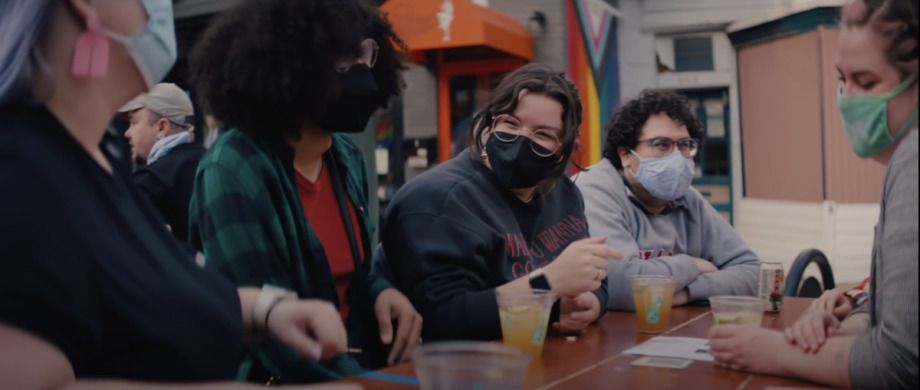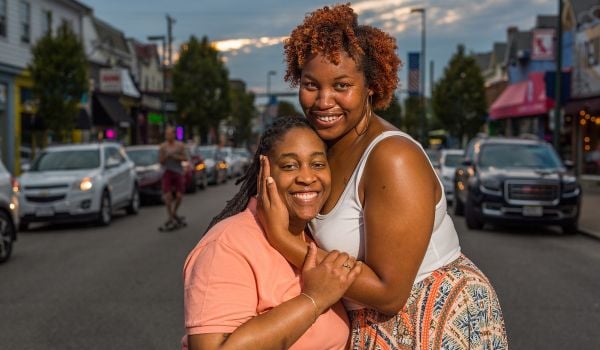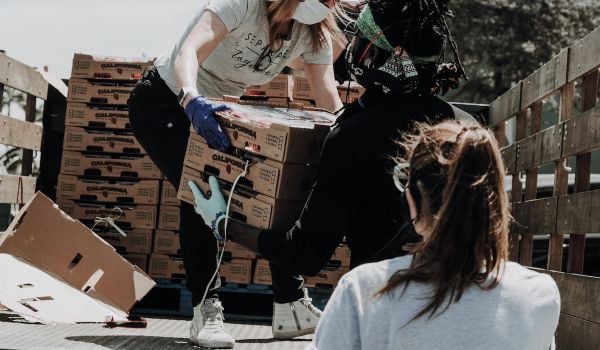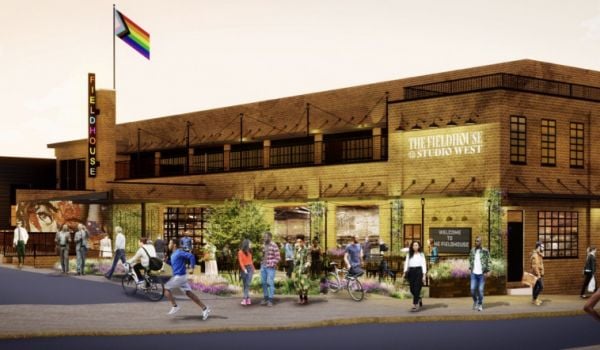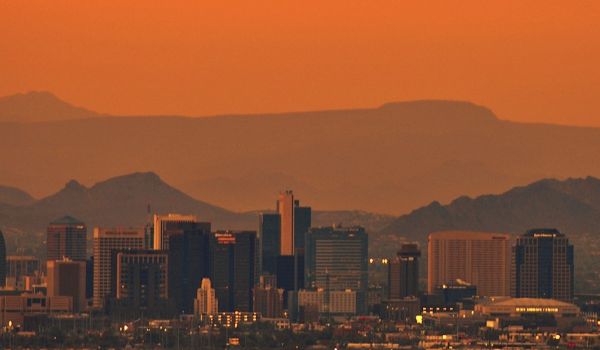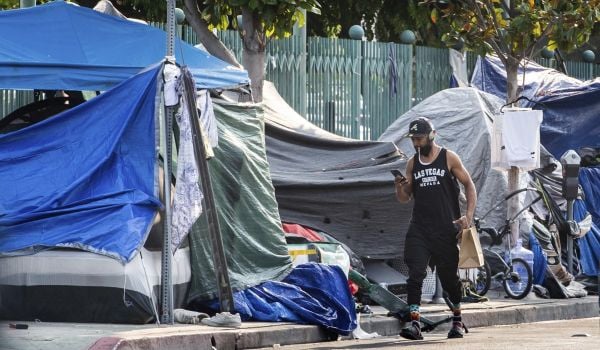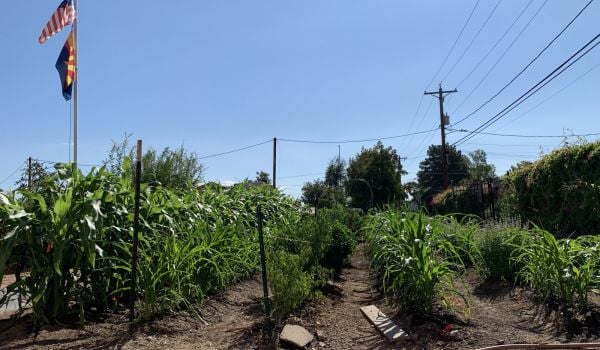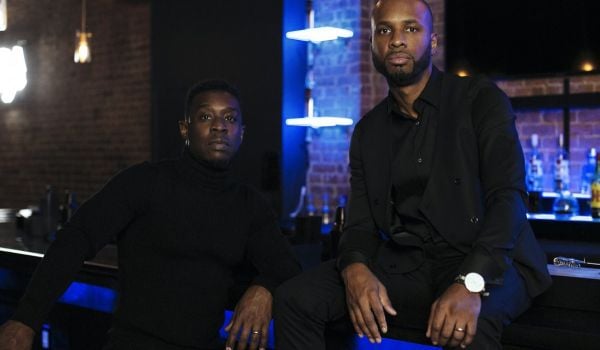During the pandemic’s hardest, most uncertain days, regulars at Boycott Bar in Phoenix would sometimes show up with a lawn chair, just to hang out for a few hours outside one of the last remaining lesbian bars across the entire country.
In 1987, there were an estimated 206 lesbian bars across the U.S. Boycott Bar is one of fewer than two dozen that remain today.
“One thing that the pandemic made me realize is that we weren’t just a bar, we were actually a community space,” says owner Audrey Corley. “There were people who had nowhere to go, we were interacting with people who had no community and they came to us just for social interaction at that time. Our community made us believe in things again.”
Once again, it’s tragedy that brings a spotlight to the importance of safe spaces for LGBTQ communities. Most recently, it was last month’s mass shooting at Club Q in Colorado Springs. Boycott Bar held a candlelight vigil to commemorate those lost and affected, directly and indirectly.
LGBTQ spaces face many of the same challenges as other bars across the country: rising commercial rents, rising supply costs, trouble finding enough workers, and so on. But Corley says there’s no question of the biggest threat to the continued existence of lesbian bars in particular.
“Hate and ignorance,” she says. “That is the biggest threat – people who still can’t understand that we are a loving community and we just want to love. We are no different. We are your brothers, your sisters, your moms, your dads. We are in the same communities as you.”
Boycott Bar is one of three lesbian bars featured in the new three-part documentary series “The Lesbian Bar Project.” Filmmakers Erica Rose and Elina Street created the series partly as a fundraiser to support struggling lesbian bars, and partly to raise awareness after learning about the dramatic decline in lesbian bars across the country. It’s an unfortunate reality that directly affects the filmmakers personally as LGBTQ women.
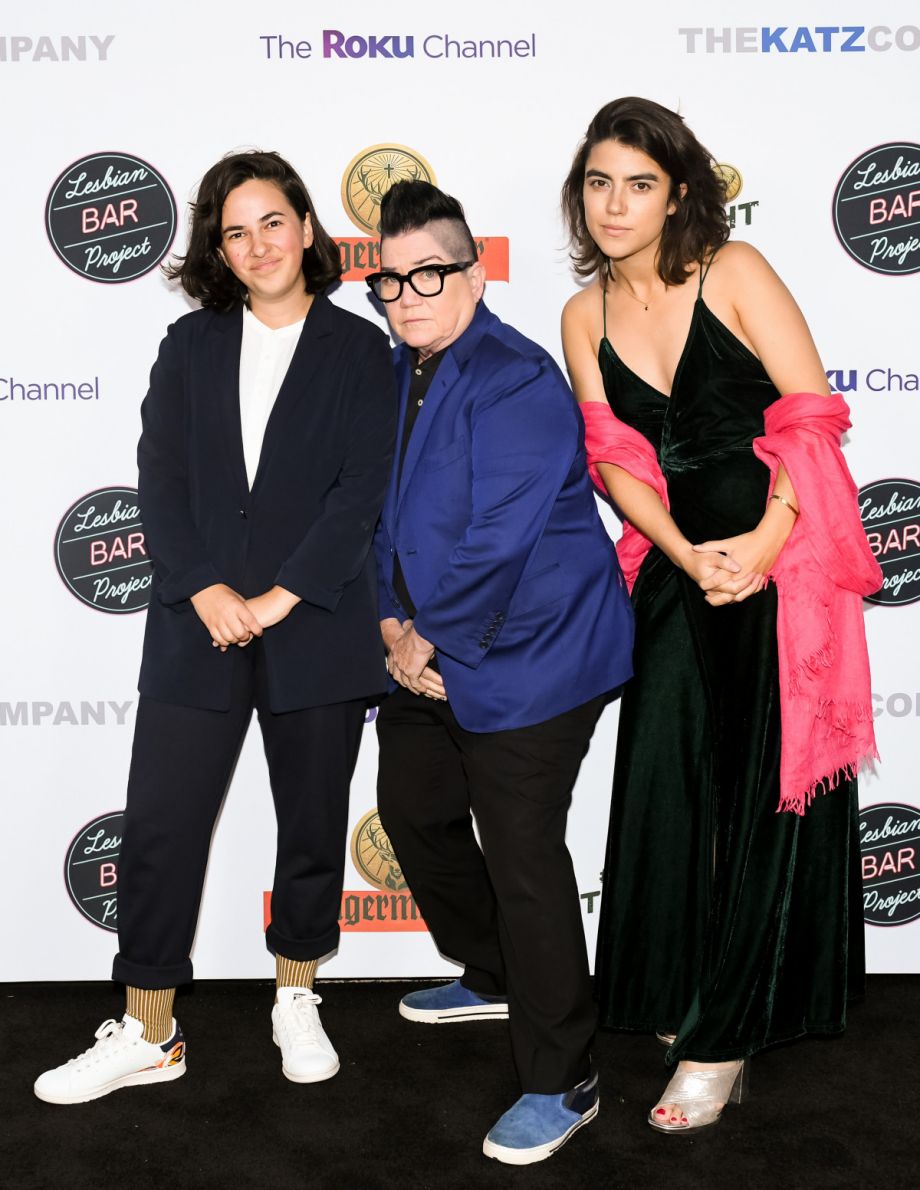
“The Lesbian Bar Project” co-creators Elina Street and Erica Rose pose with executive producer Lea DeLaria at the New York City premiere of the docuseries. (Courtesy photo)
“There’s one thing to have queer stories, it’s another thing to empower the the filmmakers behind it who are actually representative of that community,” Rose says. “For so long, our stories have been at the hands of people who are not part of our community, and that perpetuates misinformation, mythology and stereotypes about representation.”
The documentary series also features Houston’s Pearl Bar, New York’s Henrietta Hudson, and also some of the original members of the Salsa Soul Sisters Third World Inc. — not a bar, but one of the first organizations to focus on the needs of lesbians of color in New York City. The New York City premier of the documentary series brought together all three bar owners as well as members of Salsa Soul Sisters, filmmakers Rose and Street, and series executive producer Lea DeLaria, the iconic lesbian comedian who also serves as the host for each episode.
Last year, Rose and Street also produced a shorter 20-minute version of the docuseries as a fundraising effort to raise money for lesbian bars that lost business during the pandemic. That version also featured Herz in Mobile, Alabama, as well as As You Are Bar — which was still a new effort at the time but officially opened its doors in March 2022.
Boycott Bar’s own history is illustrates some of the particular precariousness but also the resilience that characterize lesbian bars. The bar was previously known as “ZGirl Club,” one of several lesbian-friendly Phoenix bars and clubs once owned by Phoenix LGBTQ icon Rhonda Walden. Walden started or took over a handful of venues during a wave of LGBTQ spaces that opened up in Phoenix after the 1969 Stonewall Riot in New York. But the wave eventually receded — two of Walden’s other establishments closed and never re-opened.
Z Girl Club had a great location, right on North 7th Avenue in the heart of Phoenix’s Melrose District, the city’s main “gayborhood.” Corley had long dreamed of owning a bar in the Melrose, where she’d already spent years working at gay and lesbian bars like E-Lounge, another prominent Phoenix lesbian bar that has since closed.
But the first time Walden approached Corley about taking over Z Girl Club Corley said she wasn’t ready yet. Though she’d had around two decades of experience working or running bars, Corley didn’t feel ready to own two at a time. She was still running her first nightclub — not a gay or lesbian space, just a straight night club in nearby Glendale called Sevens Lounge. On top of that, for about a decade at that point she’d been running Boycott as a twice monthly party for LGBTQ women hosted at different locations around the Phoenix area. She had a lot going on.
Z Girl Club eventually shuttered its doors. Then, in August 2016, a shooting in the parking lot of Sevens Lounge got Corley thinking about making some new moves. Walden approached her again about taking over the bar. This time Corley was ready, renaming the bar after she took over and re-opened its doors in 2017. After a few months she closed down Sevens Lounge to focus all her time and energy on Boycott Bar.
“You know what’s funny is I didn’t even want to call it Boycott,” Corley says. “But my best friend was like, you have to call it Boycott, that’s your legacy.”
The bar business isn’t easy for anyone, but lesbian bars face some constraints unique to their particular niche market. Women still earn just 84 cents for every dollar men make, and that gap is even greater for women of color. That’s fewer disposable income dollars to go around.
“It’s not the biggest market you could have,” Corley, who is half Latina, says. “Women, we don’t make the same amount of money as men do. There’s a wage gap factor that makes it even harder. And women tend to be nesters – they get into relationships and they tend to stay home.”
Corley had an ideal situation to start out at Boycott Bar, but still didn’t get the same start as many bars owned by white men, gay or straight.
Corley started out with years of experience in the industry as a worker and an owner-operator of a straight nightclub. She had a huge potential customer base given the network and reputation of Boycott as a roving party for more than a decade. The space she was taking over had previously been a lesbian bar in Phoenix’s primary gayborhood. But when it came to the renovations for the space to give off the vibe and energy she wanted, Corley decided to bootstrap it to cover the costs as things went along. She’s only just got around to adding the outdoor patio.
“It looked like it was from the ‘80s and ‘90s,” Corley says. “It needed a good updating. We re-did the back bar, put in a stage, took out the drop ceiling, put in all the booths along the wall.”
Gay or straight, bars owned by men continue to have much greater access to capital than those owned by women, which means they can access more capital upfront to make renovations when a business first gets started or changes hands or moves.
Bars and restaurants are the most frequently supported business type for the U.S. Small Business Administration’s 7(A) program, the federal government’s largest small business lending program. But the program relies on private banks being the ones that actually make loans while the agency provides loan guarantees that protect lenders in case the borrowers fail.
The reliance on private lenders tilts the playing field against anybody who isn’t white or male. Bankers lend to who they know and trust, especially when it comes to small business loans. Most bankers today are still white men. So it’s no surprise that in a typical year, when the SBA supports 50,000-60,000 small business loans all over the country, only 18% of those loans go to women-owned small businesses.
Until odds like those change for women-owned businesses, lesbian bars will likely remain in more vulnerable financial positions compared with their male-owned counterparts, gay or straight.
Bringing in other historically marginalized customer bases is one way to even the odds. In the new documentary series, one thing that’s clear is that these lesbian bars have benefited from — and may not have survived the pandemic years without — welcoming a much wider audience than just cis women seeking other cis women. Trans, non-binary, bisexual, other sexual and gender identities can be seen across all three episodes finding homes in these lesbian-owned bars.
The kind of safe space necessary to do that is only possible by being genuinely intentional about welcoming a wider swath of humanity. Lesbian Bar Project’s Pearl Bar episode features the creators and artists of H-Town Kings, a drag king show in Houston that does a weekly performance at Pearl Bar. The Henrietta Hudson episode spends time on owner Lisa Cannistraci’s post-COVID re-modeling and re-branding of Henrietta Hudson as “a queer bar owned by lesbians.”
“I want it to be a safe space for everybody,” Corley says. “Non-binary, trans, lesbian, everyone, even straight – I just want it to be somewhere you can come in and feel loved.”
This article is part of The Bottom Line, a series exploring scalable solutions for problems related to affordability, inclusive economic growth and access to capital. Click here to subscribe to our Bottom Line newsletter.

Oscar is Next City's senior economic justice correspondent. He previously served as Next City’s editor from 2018-2019, and was a Next City Equitable Cities Fellow from 2015-2016. Since 2011, Oscar has covered community development finance, community banking, impact investing, economic development, housing and more for media outlets such as Shelterforce, B Magazine, Impact Alpha and Fast Company.
Follow Oscar .(JavaScript must be enabled to view this email address)



